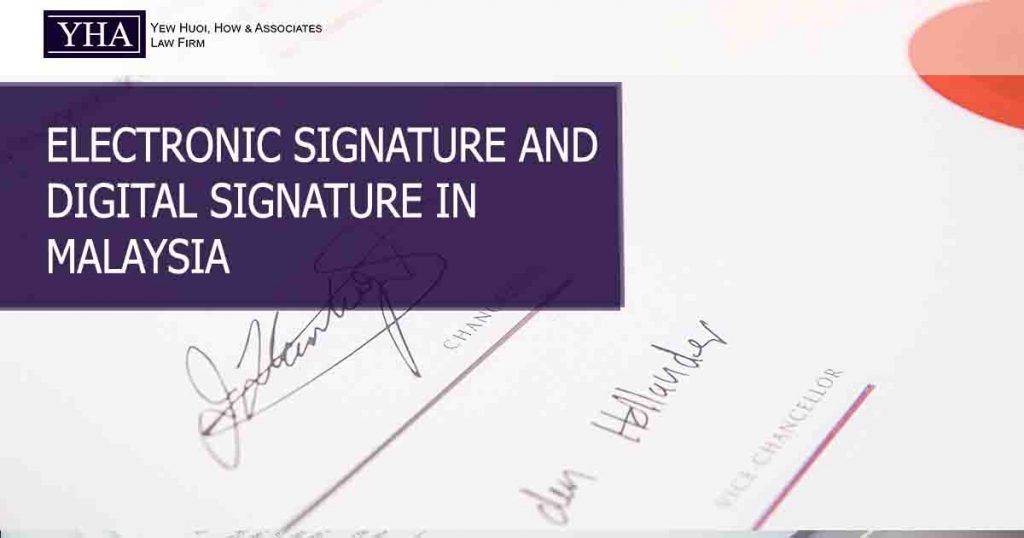What is an e-signature?
Under the Electronic Commerce Act 2006 (“ECA”), an e-signature is a signature adopted by a person in the form of any letter, character, symbol, number, sound or any of the combination which is created in an electronic form. An e-signature can replace a handwritten signature in virtually any process.
Different forms of e-signature: –
- Bitmap Signature – Scanned images of handwritten signatures onto a document.
- Digital Signature – A process that guarantee the authenticity of the electronic document via asymmetric cryptosystem (an algorithm or series of algorithms which provide a secure key pair).
- Biometric Signature – Certified and verified signature via fingerprint, retina, iris or voice.
How is digital signature valid?
Yes. It is valid but the following conditions must be fulfilled:
- The digital signature must be verified by reference to the public key listed in a valid certificate issued by a licensed certification authority;
- The digital signature was affixed by the signer with the intention of signing the message; and
- The recipient has no knowledge or notice that the signer has breached a duty as a subscriber and does not rightfully hold the private key used to affix the digital signature.
What is the implication of signing under the digital signature?
A message shall be as valid, enforceable and effective as if it had been written on paper if: –
- It bears in its entirety a digital signature; and
- That digital signature is verified by the public key listed in a certificate which was issued by a licensed certification authority and was valid at the time the digital signature was created.
What documents can be executed via e-signature?
Corporate documents and contract.
What documents cannot be executed electronically?
- Powers of attorney
- Wills and codicils
- Trusts
- Negotiable instruments
Which certification authorities in Malaysia has the license from MCMC to issue digital certificates under the DSA?
- Pos Digicert Sdn Bhd (457608-K);
- MSC Trustgate.Com Sdn Bhd (478231-X);
- Telekom Applied Business Sdn Bhd (455343-U); and
- Raffcomm Technologies Sdn Bhd (1000449-W).

